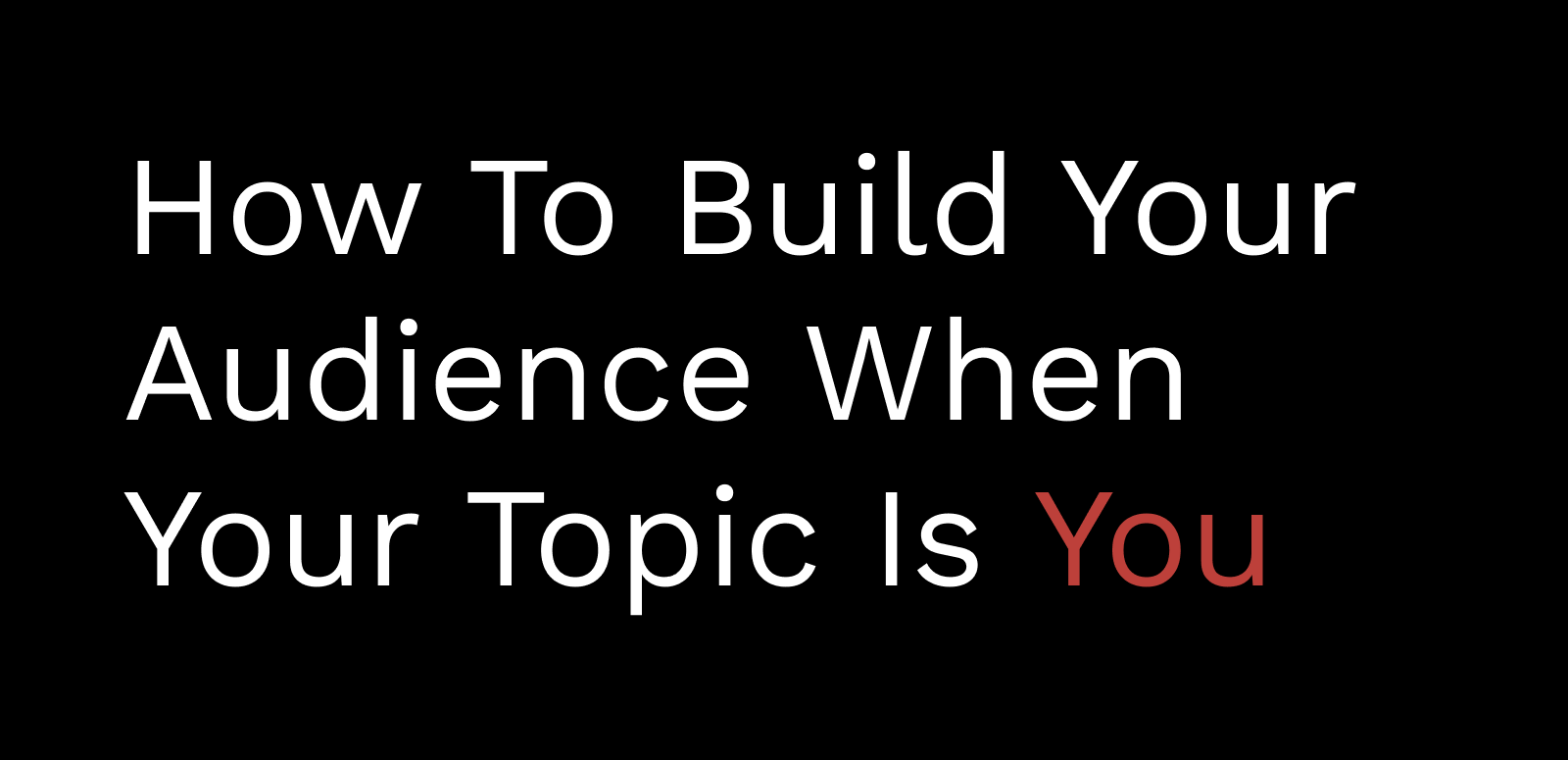I got an email from a writer trying to figure out how to get more people to read his stuff.
He was frustrated because he just tells personal stories and has no idea how to grow his audience.
Here’s what he said:
“My newsletter isn’t about improving oneself.
My posts won’t be “how to” do anything.
They’ll be about my life and will make people laugh out loud when they read them because they can relate to my life experiences.
My topic is . . . me.”
I love the way he said that.
It’s something I know LOTS of writers struggle with.
How do you provide value when what you’re doing doesn’t really provide any value outside of entertainment?
Here’s what I told him…
It’s fine if you want the value you provide to be “entertainment” and that can certainly work.
But…
Keep in mind that means you’re competing against every other form of entertainment for attention (let alone money).
That means you (probably) want to position yourself as entertainment for a specific audience.
And define the value of that entertainment to that audience.
Tell them why it’s worth their attention (let alone money).
This can be done, but you need to message it properly.
You need to go find where your specific audience is hanging out and go connect with them.
Facebook groups, social channels, other blogs, podcasts, etc.
They won’t magically find you.
You need to go to them.
Find where the community of people who will like your stuff are already hanging out and go make friends.
Relationships become friends…
Which become an audience…
Which becomes a community…
Which becomes valuable.
The messaging on your site needs to be about the reader and the value you provide.
It’s counterintuitive, but your home page or newsletter signup page or about page isn’t actually about you.
It’s about your potential audience.
Your home page can’t just talk about you and your stories.
It needs to say who they’re for, how they provide value, etc.
You need to explain why people should care.
And the reason they’ll care is the value it provides to them.
Even if that value is “just” entertainment.
For example:
Let’s say you decide your stories are to help men reminisce about what it was like to grow up and give them an excuse to spend a few fun minutes remembering or sharing stories about their own childhood.
Your home page might say something like this…
“Remember what it was like to be a boy?
Me too.
Join me for a fun (and occasionally ridiculous) trip down memory lane with a weekly story about when life was simple…
Before we went and complicated everything up as adults.”
That’s rough, but you get the point (hopefully).
The other thing you’ll notice is with that description suddenly it feels like you’re building/attracting a community of people with shared interests.
It’s not about you — it’s about them.
You just happen to be leading/connecting them.
Read Seth Godin’s book Tribes.
As he says in it, “The Beatles didn’t invent teenagers — they just offered to lead them.”
